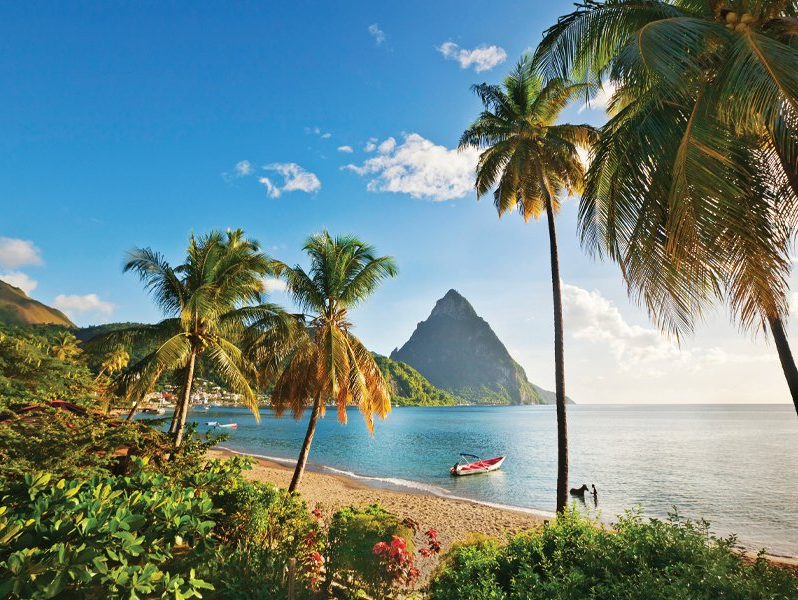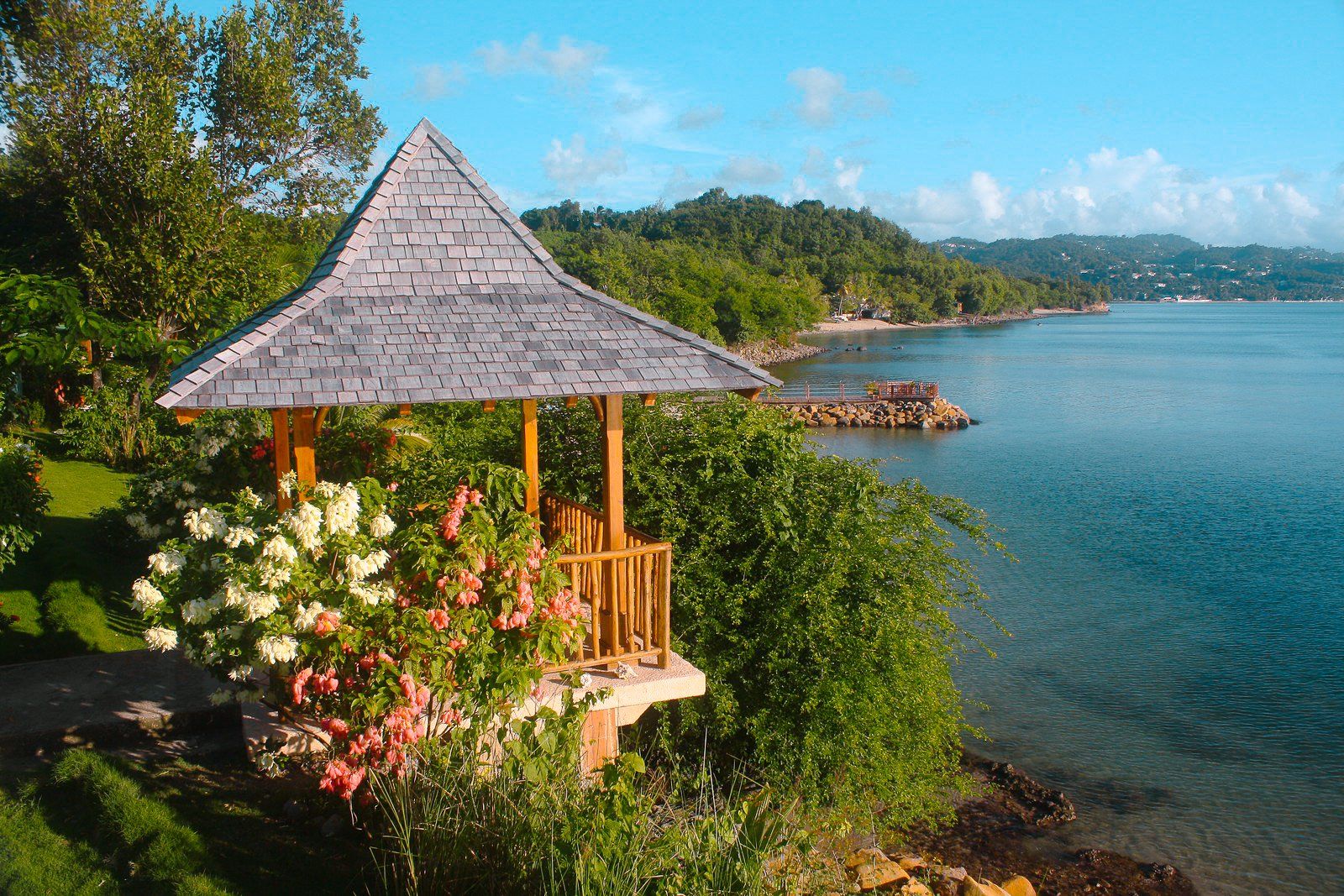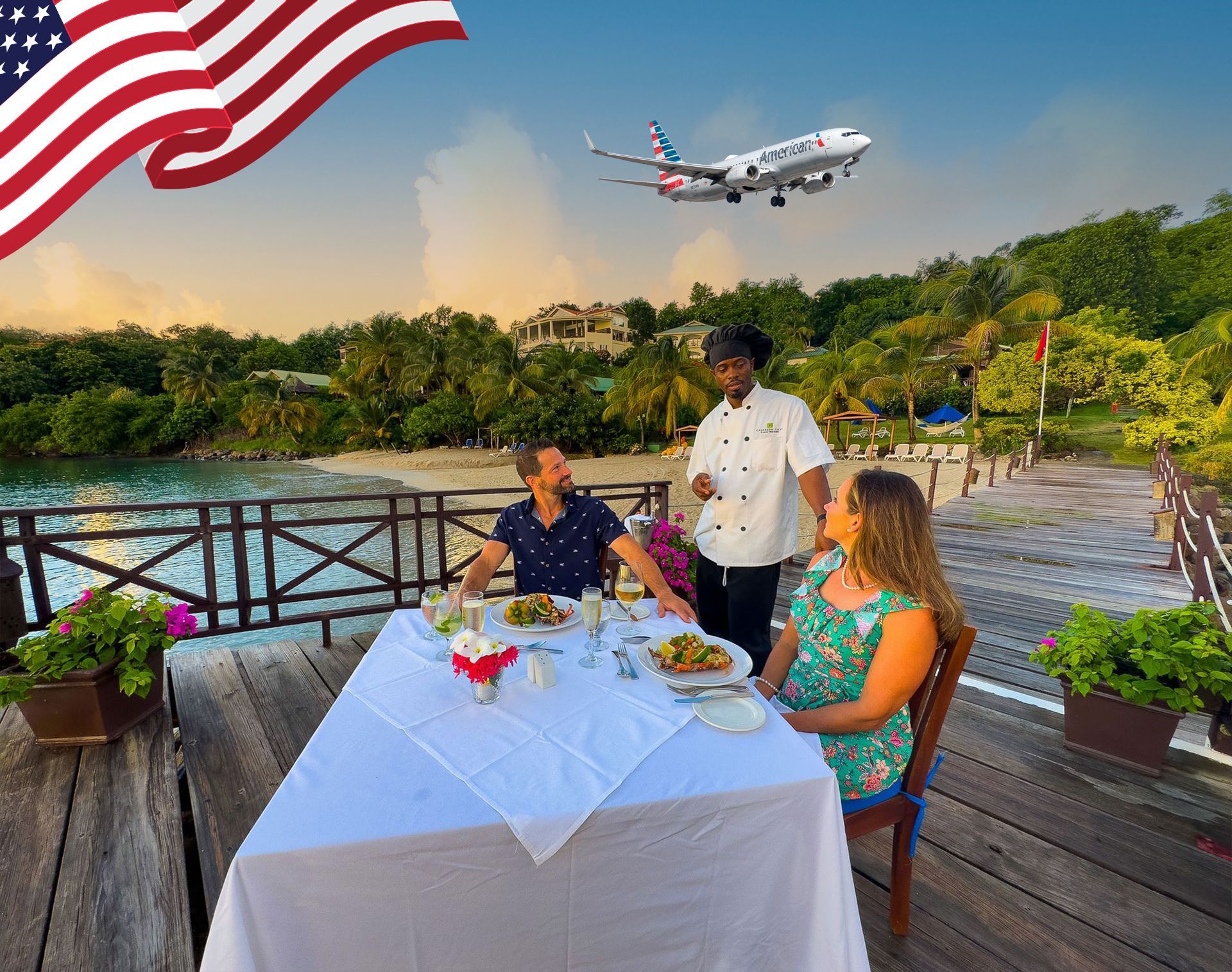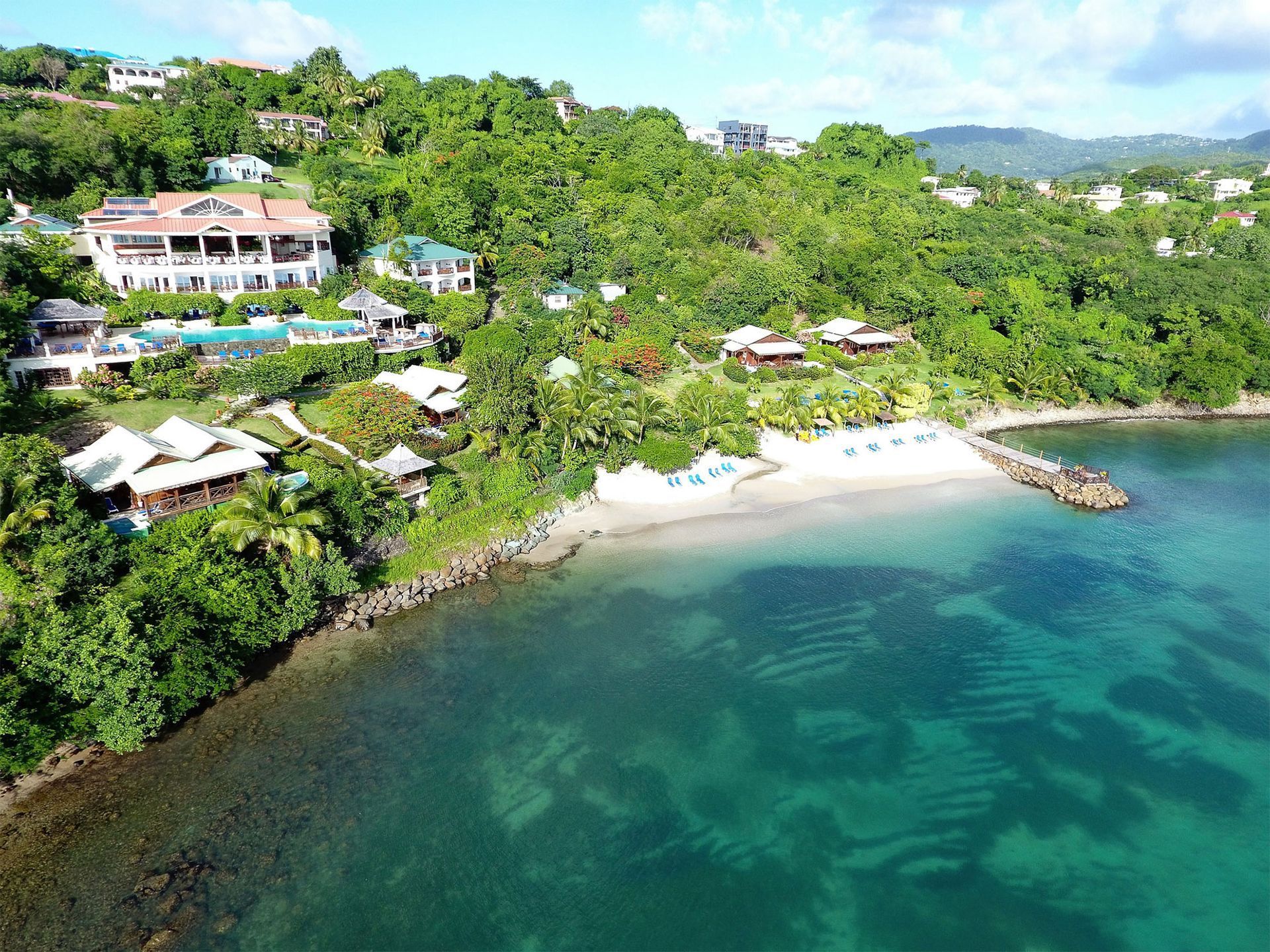Share this blog
Responsible Travel - How the hospitality, travel and tourism industry is shaping up.
Sustainable Hospitality at Calabash Cove
Our news headlines were dominated for a two years period by the pandemic.
Somewhere amongst the burning issues of the day is Climate change and the countdown to doomsday.
The hospitality, travel, and tourism industry was devastated by the lockdowns and travel bans and, now after a state of recovery, is weighing up the pros and cons of investment in sustainability. It is clear that there are two elements that travelers are taking more seriously than before. Reducing their carbon footprint when traveling and health and well being.
Travelers Speak Out
There are strong indicators that travelers globally are more concerned about the footprint they leave. Surveys by Booking.com, Virtuoso, and the UNWTO all reveal that a high percentage of people who want to travel are seeking more sustainable destinations, accommodation providers investing in sustainability, and methods by which they can offset their travel.
It was noticeable that Conde Nast Traveler, one of the most prestigious travel magazines in Europe and North America, published its first-ever 'Sustainability" issue in October 2020.
Life in Full Color
The most apparent catalyst for the increased awareness of "responsible" travel is that during the pandemic, nobody flew anywhere. The effect on the planet was dramatic and there for all to witness. National Geographic's "before and after" images showed various locations that enjoyed a kind of rebirth. New Delhi was covered in a grey cloud of pollution, then weeks after the traffic stopped and the planes were grounded, there it was in full color.
In 2022, with the headlines shifting attention to the war in Ukraine, the pandemic is fading in our minds, and we worry about food shortages, fuel prices, and a massive surge in the cost of living.
Tourism restarted in 2022 with a veritable 'booking frenzy". People were so keen to get away from where they had been locked away and starved of entertainment, and they wanted and needed warm sun and soft sand. The Caribbean, along with many other destinations, was packed to capacity since before Christmas 2022.
During the pandemic, hotels already committed to sustainable operations have been convening webinars to demonstrate that investing in sustainability is the right thing to do and good for business.

New Delhi Before and After Lockdown
Luxury V Frugality
The big question that hoteliers are facing is this. Will investing in sustainable hospitality reduce both guest satisfaction and profitability? Since occupancy and guest satisfaction are the key drivers for the hotel business, how far will they go, and is it possible to strike a workable balance between the two sides of the coin?
The government and Tourism Authority in Saint Lucia are working to do their part. A hotel cannot reduce its own carbon footprint if it has no choice in where it gets its power. If that source is fossil fuel-based, the hotel cannot change that quickly. But hotel owners can begin to reduce their reliance on the grid and introduce both solar and wind power. The issue here is that it is a massive investment. However, despite that the St Lucia government has already invested in solar farmsin the South of the island that now supply significant power to the grid. It is a work in progress.
Other elements that interest hoteliers are:
- Investment in the local community
- Encouraging clients to immerse themselves into the local culture and local initiatives.
- Using local materials and local craft skills wherever possible. (This need not lower standards, comfort, or guest perception of luxury.)
- Working with local farmers and fishermen to design the products that a five-star restaurant needs instead of importing everything.
- Elimination ofthe use of plastics. It is now illegal to import plastic containers, cutlery and many other items.
- Responsible Waste Management
And as for Calabash Cove-What do we do?
- All hot water is generated by solar energy. There are no oil or gas heaters on the property.
- Grass cuttings are mulched and composted.
- Plastic bottled water has been discontinued.
- Sparkling water and drinking water are served in reusable glass bottles.
- Kitchen oil is collected and used by the laundry to heat water for washing.
- Food waste is separated and given to a farmer.
- All disposable containers for lunch boxes etc., are recyclable paper and bamboo products.
- All disposable plastic straws, water, and coffee containers have been banned.
- All disposable cutlery has been banned.
- Only phosphate fee detergents are used in housekeeping and food and beverage departments.
- Wastewater is treated on the property and used for irrigation.
- All lights are fitted with LEDs.
- Much of our food and beverage supplies are sourced locally, focusing on local farmers and fishermen.
- We are one of the few places on the Island offering a Vegan menu option. https://irp.cdn-website.com/153b038b/files/uploaded/Calabash%20Cove%20Saint%20Lucia%20Vegetarian%20Menu.pdf
In Conclusion
Sustainability will remain a hot topic in the hospitality and travel industry.
There are two reasons for this. One is that the enormous amount of pent-up demand crashed into a severely compressed amount of supply — which means overtourism is once again on everyone's minds.
As we look forward to continuing recovery, we must be careful not to sink the ship. Hospitality is working to make the post pandemic era, a "conscious comeback," a "responsible recovery".
At the same time, topics of sustainability, overtourism, and global warming are looming large among our customers. Much of the push is generational, but it might also be because the travel product has become so good that expectations are shifting.
As the quality of hospitality improves from the bottom up and becomes less discernible, we think that travelers will make choices based on something beyond what they know they're going to get. So in place of "luxury" and "comfort," they will look out for values, for example, sustainability, how we treat our employees, and more emotional and purpose-driven factors.
We don't imagine that our guests will suddenly quiz us about how sustainable we are. But it is up to us to keep our guests and prospective guests informed about what we are doing and the progress we make. You can be sure of that. If you haven't already, please sign up for our newsletter. One article each month will be devoted to sustainability news both at the resort and on the island of Saint Lucia.
It isn't all plain sailing. We are also living in an age dominated by social media, and the ability of certain factions to use this media to flood society with disinformation. So, on the one hand we see the effects of climate change before our eyes. We see the extreme flooding around the world and the destructive fires in California. How long ago did the United Kingdom start listing named and categorised storms. And yet the people with power and money insist climate change is fake. Sadly, significant numbers of largely uneducated people believe them.
It would be fascinating to know how you feel about this, so we have devised a short quiz about sustainable hospitality and would be very grateful if you would participate.

















